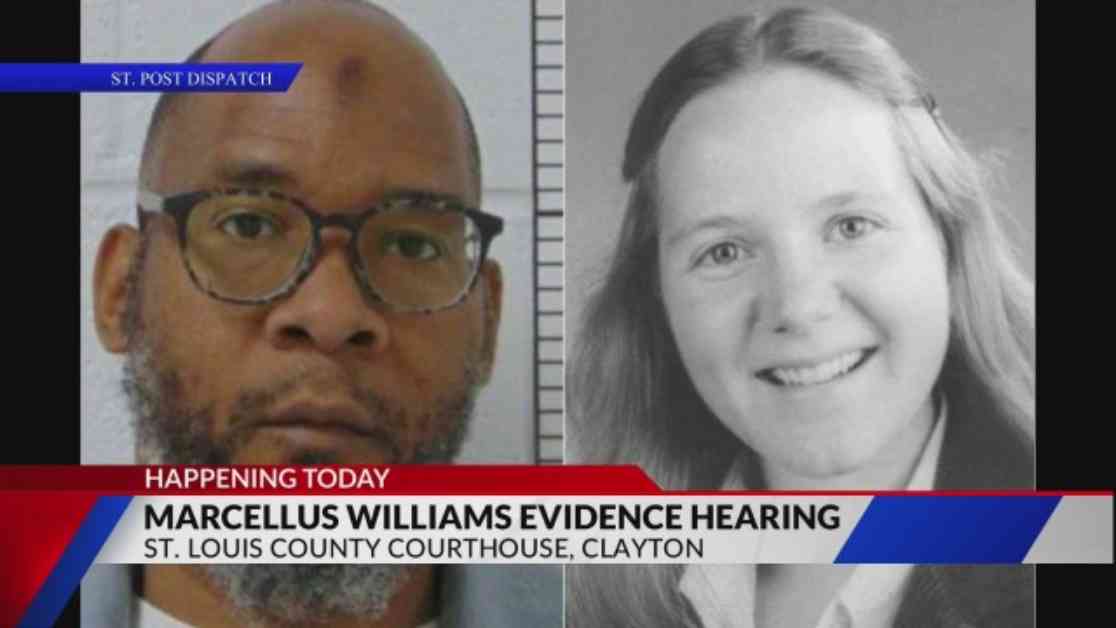New Evidence Unveiled in Marcellus Williams’ 1998 Murder Case Hearing
In a dramatic turn of events, a pivotal hearing is set to take place in just a few hours that could potentially clear Marcellus Williams of a crime he has vehemently denied for over two decades. Williams, who has been on death row for the murder of journalist Lisha Gayle in 1998, is facing a critical evidentiary hearing at the St. Louis County Courthouse on Wednesday morning.
Williams’ case has garnered national attention due to the mounting evidence pointing towards his innocence. St. Louis County Prosecuting Attorney Wesley Bell made a bold move earlier this year by filing a motion to vacate Williams’ murder conviction based on new DNA evidence that directly challenges his guilt. The development has sparked a legal battle between Bell and Missouri Attorney General Andrew Bailey, who has been pushing for Williams’ execution despite the compelling new evidence.
The case dates back to September 24th, 1998, when Lisha Gayle was brutally murdered in her suburban St. Louis home. Williams was accused of breaking into her residence and stabbing her 43 times, a crime that landed him on death row. However, recent DNA testing conducted on the murder weapon has revealed that the genetic material found does not match Williams, casting serious doubt on his involvement in the heinous act.
Governor Eric Greitens intervened in 2017 by halting Williams’ scheduled execution and ordering a thorough investigation into the DNA evidence that had never been tested before. The results of the testing, which excluded Williams as the source of the genetic material, have been pivotal in the fight for his exoneration. Bell’s motion to vacate the conviction highlights the discrepancies in the forensic evidence collected at the crime scene, including fingerprints, footprints, and DNA that do not align with Williams’ profile.
The case against Williams was primarily built on the testimonies of two witnesses who have since come under scrutiny for potentially providing false or misleading information. Bell’s motion argues that these witnesses were incentivized to testify against Williams, raising serious concerns about the integrity of the conviction.
As the evidentiary hearing approaches, tensions are running high on both sides of the legal battle. While Bell and his team are determined to prove Williams’ innocence and secure his release, Bailey is steadfast in his pursuit of executing Williams for a crime he may not have committed. The courtroom showdown on Wednesday morning is expected to be a heated affair, with representatives from both camps presenting their arguments and evidence in a bid to sway the outcome in their favor.
The outcome of the hearing remains uncertain, leaving Williams and his supporters in a state of anticipation and anxiety. A rally in support of Williams is scheduled to take place outside the courthouse, underscoring the widespread public interest and concern surrounding his case. As the wheels of justice turn, the fate of Marcellus Williams hangs in the balance, awaiting a verdict that could determine whether he will walk free or face the ultimate punishment for a crime he may not have committed.


